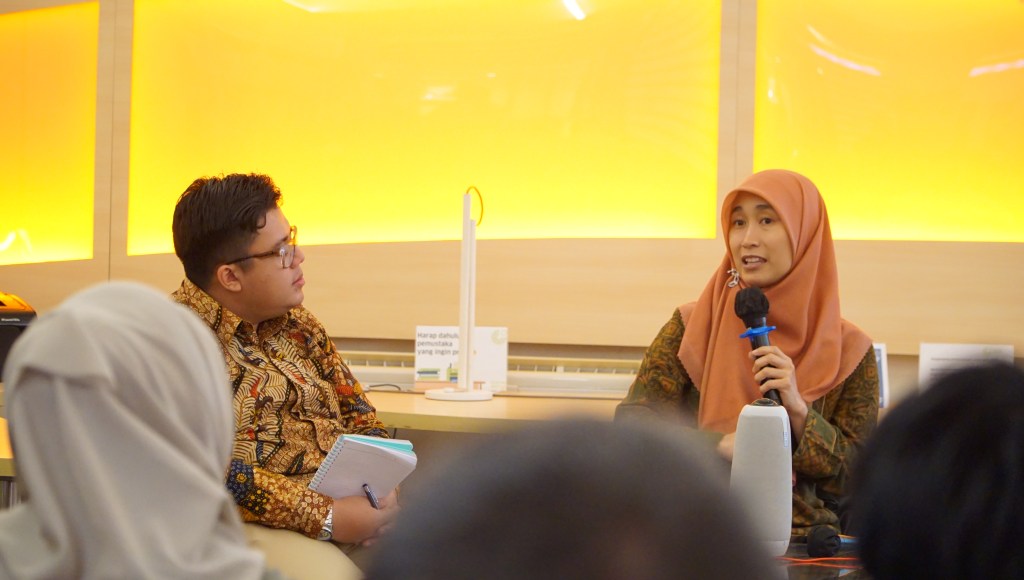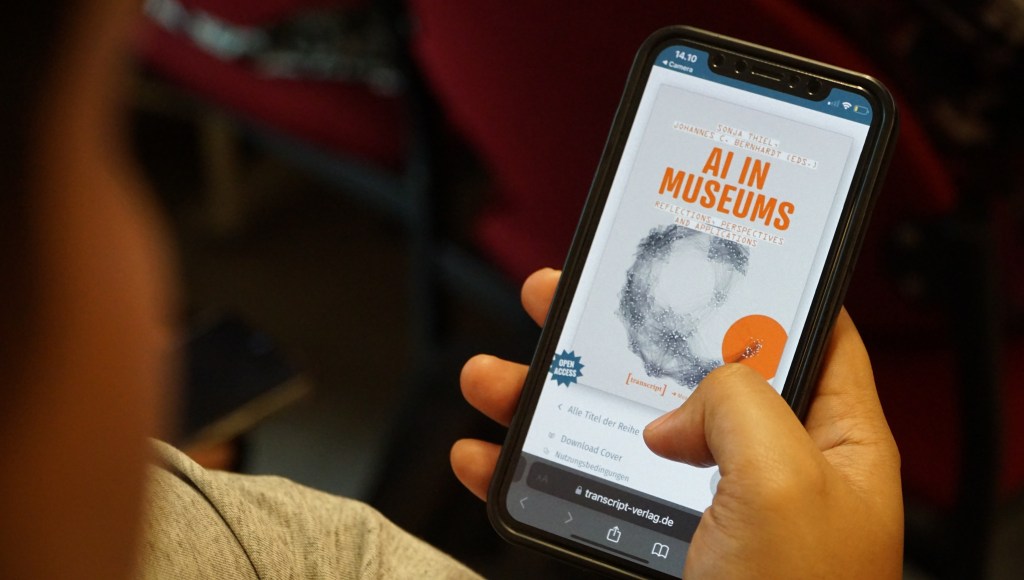Public Domain Day is an annual event that raises awareness about the notion of the public domain and announces which works have become public domain in Indonesia that year. This year, Wikimedia Indonesia and the Goethe-Institut Jakarta collaborated to celebrate Indonesian Public Domain Day 2024 under “Copyright and Artificial Intelligence.”
The discussion, conducted in the Goethe-Institut Jakarta Library, explored and deepened knowledge of the issues posed by the emergence of AI tools. Starting with its impact on public audiences and its application within GLAM (Galleries, Libraries, Archives, Museums) institutions.
Dr. Eng. Ayu Purwarianti, S.T., M.T., a lecturer and researcher at Institut Teknologi Bandung, delivered the first session on Copyright and Artificial Intelligence, which Bhredipta Socarana, LLM, CIPP/E, of Creative Commons Indonesia moderated. During the workshop, Ayu Purwarianti discussed how AI works and the current issues that its users face. AI was designed to simplify and expedite human work by learning prompts, instructions, and directions from its users.

Brigitha Varrell untuk Goethe-Institut Jakarta, Pembicara di Perayaan Hari Domain Publik Indonesia 2024, CC BY-SA 4.0
Today’s AI can perform various tasks ranging from text, images, programming, video, audio and more. However, there is no clear regulatory framework in Indonesia regarding AI works, therefore its copyright is still uncertain. Other consequences of AI include the misuse of personal data and the possible replacement of human jobs. However, as Ayu Purwarianti stated, “AI will not replace jobs entirely. People who do not use AI in their profession will probably be replaced by those who do, because AI makes labor easier and more efficient.”
Sonja Thiel, a curator and researcher from Karlsruhe, Germany, facilitated the second session on Artificial Intelligence and Museums. It was a hybrid session, with Sonja delivering her presentation online. She highlighted her experience scaling up the AI network for the Badisches Landesmuseum Karlsruhe in Germany using xCurator, a program that helps manage the museum’s contents.
AI can help museums search and index collections more efficiently and effectively by providing diverse search options and filters. AI techniques facilitate image search by recognizing images and colors. AI also plays a role in the digitization process by providing manuscript transcription with OCR (optical character recognition), such as by using Transkribus, a platform that aids in the transcription, recognition, and search process for printed and handwritten historical documents. This software has also been implemented into Wikisource as an alternative OCR engine.
AI also helps the classification process and improves the metadata of the museum’s digital collections, connecting one collection to another to produce a more comprehensive network of information.

Brigitha Varrell untuk Goethe-Institut Jakarta, AI In Museum karya Sonja Thiel, CC BY-SA 4.0
These discussions brought various advancements and improvements offered by AI tools that will be utilized in assisting human work, including for GLAM institutions, to the fore. On the other hand, unclear legal regulations and policies pose a challenge to using AI in Indonesia. As users, we should be ethically aware and responsible, especially when creating works incorporating data or works from other sources. We would also need to reconsider who would benefit the most and who would not from the usage of AI tools, as well as how to make its usage more sustainable and equitable.
To keep updated on more events organized by Wikimedia Indonesia (and its partners), visit our social media on Facebook, X (formerly Twitter), Instagram, YouTube, and Telegram.

Can you help us translate this article?
In order for this article to reach as many people as possible we would like your help. Can you translate this article to get the message out?
Start translation